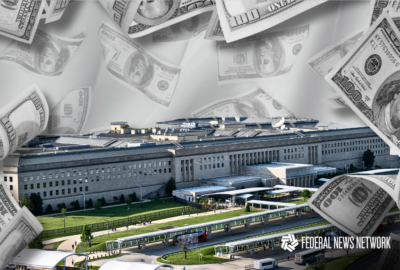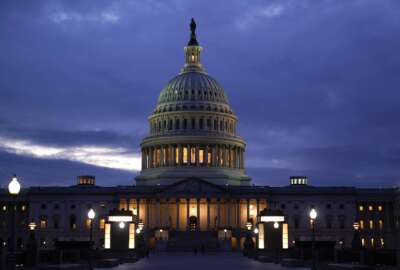Short-term funding delays Army investments, stalls key space programs
A six-month CR would delay $8.2 billion worth of investments for the Army, limit the Air Force’s ability to fund increases in military pay accounts.
While the broader debate over government spending has been postponed until after the presidential election, defense officials are detailing the consequences of another short-term funding plan on military readiness, training, contracting and modernization efforts.
President Joe Biden signed a three-month government funding bill on Thursday, averting a government shutdown at least till December.
DoD officials frequently sound the alarm over operating under a continuing resolution — Congress’ inability to pass appropriations on time is hardly new. The 2024 appropriations legislation, for instance, was passed six months into the fiscal year. Overall, Congress has managed to follow its process and pass all of the spending bills by the start of the fiscal year four times in the five decades the current system has been in place.
“The stark truth is that these short-term, temporary funding measures create uncertainty throughout the U.S. military and put us at a strategic disadvantage,” Defense Secretary Lloyd Austin said Thursday. “A lack of long-term funding delays missions, undermines readiness and inflicts unnecessary disruptions on our military families and recruitment efforts.”
In a letter to Sen. Patty Murray (D-Wash.), the Senate Appropriations Committee leader, Army Secretary Christine Wormuth said should the government operate under a six-month continuing resolution — which extends the previous year’s funding levels, but only for existing programs — the Army would have to delay approximately $8.2 billion worth of investments, and it would postpone 23 new start procurement programs valued at $400 million.
The Army announced Thursday it has met its 2024 recruiting target of 55,000 new soldiers after several tough years of missing its targets by thousands of recruits. Wormuth said yet another short-term funding cycle will limit the service’s ability to upgrade its recruiting stations, fund digital training and provide access to technology and tools for recruiters. A 6-month CR would also impact the service’s ability to offer bonuses and incentives to new recruits.
Such a bill would delay five construction projects worth approximately $146 million, including a key infrastructure project worth $44 million to upgrade the rail yard at Fort Bliss, a new crewed and uncrewed tactical vehicle lab at Detroit Arsenal in Warren, Michigan and a $10 million machine gun range at Fort Wainwright, Alaska.
In addition, the Army’s uncrewed aerial systems investments planned for the first part of fiscal 2025 will also be impacted by a continuing resolution.
“The Army’s inability to start new programs or realign funds to match emerging needs would reduce our purchasing power and create meaningful cost as well as schedule risk in Army programs,” Wormuth said in a letter to Congress.
CR impact on Air Force
In a fiscal 2025 continuing resolution impact paper provided to Federal News Network, the Department of the Air Force said a three-month CR prevents full funding for the Flying Hour Program until later in the year. Funding for maintaining, repairing and upgrading military facilities will be delayed as well.
A three-month CR also halts space systems development — it stops work on the development and modernization of the software and IT systems used to manage space launches and postpones the development of security technologies designed to safeguard space communication systems.
A six-month CR, however, would limit the department’s ability to fund increases in military pay accounts and initiate new bonuses used to attract and retain personnel in specialties that have significant staffing shortages, such as cyber personnel. The service said a 6-month CR could impact key military benefits, including the Basic Allowance for Housing and Basic Allowance for Subsistence.
“Any length of CR impacts readiness, hinders acceleration of the Space Force, delays military construction projects, reduces aircraft availability, and curbs modernization in the race for technological superiority. These impacts get dramatically more perilous as Sequestration is imposed under the Fiscal Responsibility Act,” the Air Force said.
Congress will not be back in session until after the presidential election. The three-month spending bill passed this week will keep the federal government open until Dec. 20.
Copyright © 2025 Federal News Network. All rights reserved. This website is not intended for users located within the European Economic Area.







